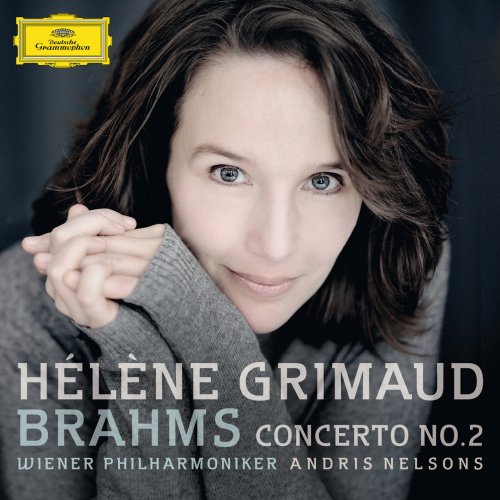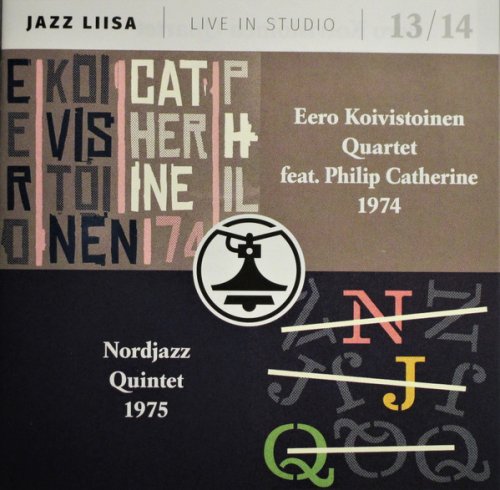Hélène Grimaud - Brahms: Piano Concerto No. 2 (2013) [Hi-Res]

Artist: Hélène Grimaud, Wiener Philharmoniker, Andris Nelsons
Title: Brahms: Piano Concerto No. 2 In B Flat, Op. 83 (Live)
Year Of Release: 2013
Label: Deutsche Grammophon
Genre: Classical
Quality: FLAC (tracks, booklet) [96kHz/24bit]
Total Time: 52:16
Total Size: 939 MB
WebSite: Album Preview
Tracklist:Title: Brahms: Piano Concerto No. 2 In B Flat, Op. 83 (Live)
Year Of Release: 2013
Label: Deutsche Grammophon
Genre: Classical
Quality: FLAC (tracks, booklet) [96kHz/24bit]
Total Time: 52:16
Total Size: 939 MB
WebSite: Album Preview
Johannes Brahms (1833-97)
Piano Concerto No. 2 in B flat major, Op. 83
1. Allegro non troppo 18:51
2. Allegro appassionato 9:25
3. Andante - Più adagio 12:44
4. Allegretto grazioso - Un poco più presto 9:27
Waltz in A flat major op. 39 no. 15
5. 15. Waltz in A flat major 1:48
French pianist Hélène Grimaud has been called a Glenn Gould for our time, the creator of highly original, technically superb readings that are either brilliant or idiosyncratic, depending on your personal reaction. You might consider that a red flag for Brahms, for Gould was at his worst in Romantic repertory, seeming to push against the structures the composer intended. Here Grimaud comes out all right, however. Yes, the readings are unusual. The opening movement of the Piano Concerto No. 1 in D minor, Op. 15, is taken extremely slowly, with each note and each detail almost hammered out. It's very much the interpretation of the young woman who, as Grimaud once said in an interview, broke down and cried after playing the concerto for the first time. You may or may not like this way of approaching the work, but objectively you'll likely have to admit that she pulls it off. This is in no small part due to the work of conductor Andris Nelsons, who lays out a lengthy orchestral exposition that Grimaud plays off of in many ways. The second and third movements are more straightforward. The orchestra for the first concerto is the Bavarian Radio Symphony; for the second you get the Vienna Philharmonic, again under Nelsons, and even more capable of delivering the ripe, Romantic mood Grimaud sets out. The precise, intellectual Brahms so prized by some listeners is nowhere in evidence here, but this is a charismatic, exciting recording. Deutsche Grammophon's engineering is a plus in Munich's Herkulessaal in the first concerto, a major plus in the second, where they set up shop in Vienna's Musikverein. They must have recorded there hundreds of times, and the orchestra played there just as often. But nothing at all here is done by rote. ~ James Manheim
Related Releases:


![Laura Anglade - Get Out of Town (Deluxe) (2026) [Hi-Res] Laura Anglade - Get Out of Town (Deluxe) (2026) [Hi-Res]](https://www.dibpic.com/uploads/posts/2026-02/1770950244_kznexew2l78jj_600.jpg)


![John Coltrane - Giant Steps (1959) [2022 DSD256] John Coltrane - Giant Steps (1959) [2022 DSD256]](https://www.dibpic.com/uploads/posts/2026-02/1770884999_cover.jpg)
![Charles Owens Trio - 10 Years (Anniversary Edition) (2026) [Hi-Res] Charles Owens Trio - 10 Years (Anniversary Edition) (2026) [Hi-Res]](https://www.dibpic.com/uploads/posts/2026-02/1770942375_qq3q442wai8jz_600.jpg)

